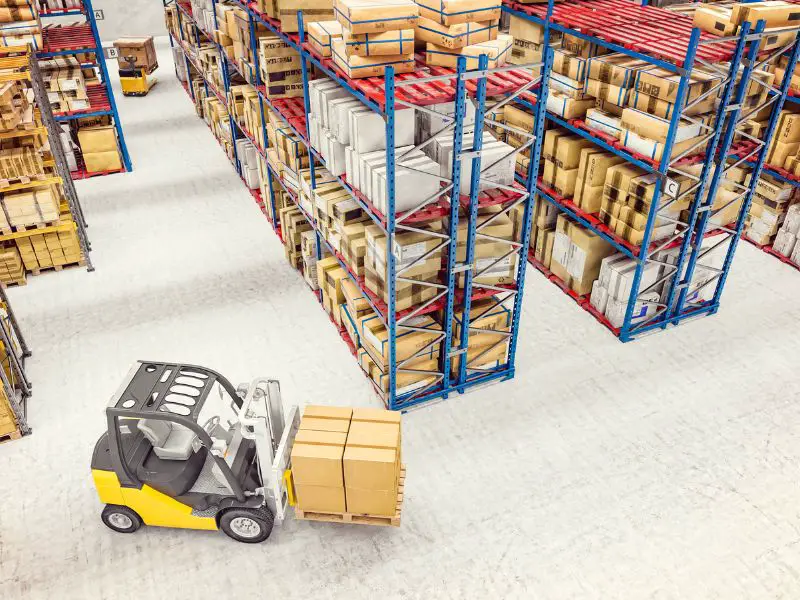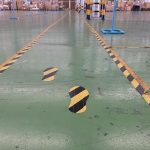The warehousing industry has evolved drastically over the years, with new technologies emerging to improve the efficiency and safety of operations. One such significant development is the invention of forklifts, which have revolutionized how goods are transported within warehouses.
Forklifts are critical to the warehousing industry; they significantly improve material handling efficiency and reduce operational costs. These allow workers to move goods quickly and efficiently, reducing the time and effort required to complete a task.
Singapore is a global hub for logistics and warehousing, and the industry has grown significantly over the years. With the influx of new technologies and innovations, the warehousing industry has become more efficient, cost-effective, and sustainable.
The IC forklift remains a crucial part of Singapore’s warehousing industry, and its evolution is a testament to its versatility and reliability.
This blog post will explore the evolution of Internal Combustion (IC) forklifts in Singapore’s warehousing industry from its early days to now.

The Evolution of IC Forklifts
Forklifts have come a long way since their invention in the early 1900s. They have undergone significant design, functionality, and power source changes, and IC forklift has been at the forefront.
The first IC forklift was introduced in the 1920s, relying on gasoline as its power source. Although gasoline-powered forklifts were efficient, they were not environmentally friendly and often produced harmful emissions.
Early Days of Forklifts in Singapore
Singapore’s warehousing industry dates back to British colonial times when warehouses were built to store and distribute goods. The first forklifts were introduced in Singapore in the early 1950s, and they were essential in improving material handling efficiency.
Forklifts enabled workers to move goods quickly and efficiently, reducing the time and labor required to complete a task. They were also ideal for stacking goods on high shelves, maximizing warehouse storage space.
Technological Advancements in IC Forklifts
IC forklifts have undergone several significant technological advancements over the years. The introduction of propane and diesel-powered forklifts in the 1960s and 1970s, respectively, revolutionized how forklifts were used in warehouses.
These new power sources were more environmentally friendly and cost-effective than gasoline. There has been a growing demand for eco-friendly forklifts in recent years, and manufacturers have responded with more efficient and sustainable models.
Current Trends in IC Forklifts
Integrating smart technologies is one of the latest trends in IC forklifts. These technologies include sensors, cameras, and other devices that collect data and provide insights to operators and managers.
Smart technologies can improve overall productivity and safety by reducing accidents and downtime associated with maintenance.
Another trend is the adoption of electric-powered IC forklifts. Electric forklifts are eco-friendly and produce zero emissions, making them popular for sustainability-conscious businesses.
The Impact of IC Forklifts on Singapore’s Warehouses
IC forklifts have paved the way for advanced material handling techniques that are faster, safer, and more accurate than traditional methods. It also improved warehouse operations by reducing material handling time, increasing accuracy, and enhancing safety.
Efficiency and Productivity
The primary advantage of IC forklifts is their ability to contribute to faster loading and unloading processes. IC forklifts are critical in optimizing warehouse space utilization, a crucial aspect of warehouse logistics.
They can quickly move and stack pallets and other heavy materials at heights, making the most of the vertical space available in the warehouse.
Safety and Risk Mitigation
IC forklifts in Singapore’s warehouses must adhere to strict safety standards and regulations. The importance of proper training and operation of forklifts cannot be understated as it mitigates risks to property, people, and goods transported.
Fortunately, advancements in safety features such as anti-tip technology and warning systems have decreased forklift-related accidents and injuries.
Cost Savings and ROI
One significant advantage of IC forklifts in Singapore’s warehouses is their considerable return on investment (ROI).
Analyzing the economic benefits of using IC forklifts demonstrates their cost-effectiveness and shows that time, labor, and maintenance savings can add up in the long run. Comparing IC forklifts to alternative material handling systems further proves their economic viability.
Related Posts
Future Outlook for IC Forklifts in Singapore’s Warehouses
Technology continues to evolve, and as such, so do the demands and expectations of warehouse operators.
Embracing Automation and Robotics
As automation technology advances, it promises new levels of efficiency, efficiency, and sustainability in warehouse operations. Warehouse operators are now integrating intelligent automation solutions to keep up with this trend and boost overall productivity.
The integration of autonomous IC forklifts is just one new way automation is helping enhance shaping distribution logistics.
Green Initiatives and Sustainability
As awareness around climate change and emissions grows, warehouse operations are pivoting towards more eco-friendly solutions, and IC forklifts are no exception.
Advancements in eco-friendly IC forklift models have appeared, with a range of minimized carbon emissions and reduced fuel consumption. This makes IC forklifts a more sustainable and responsible material handling option.
In conclusion, IC forklifts have been a critical part of Singapore’s warehousing industry for over five decades. They have undergone significant changes and remained reliable and versatile over the years.
Technological advancements have improved their performance, sustainability, and safety, making them an ideal choice for businesses looking to optimize their warehousing operations. IC forklifts have transformed the industry, and their impact will continue to be felt for decades.




